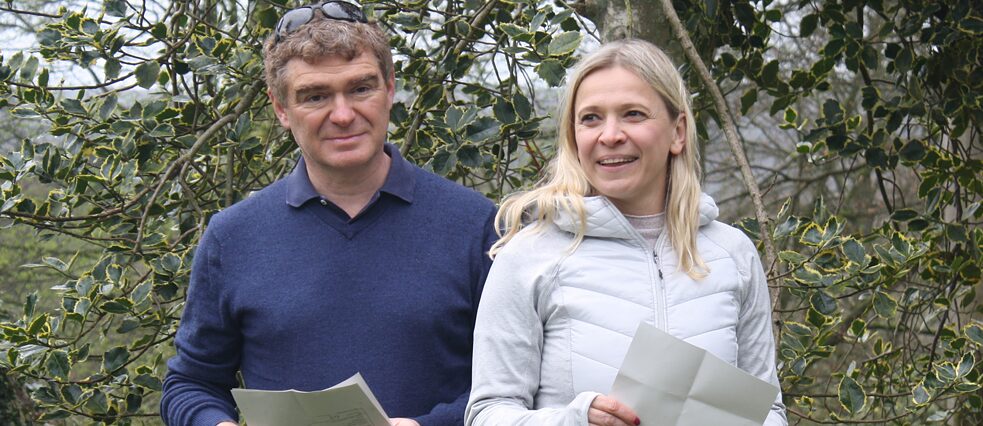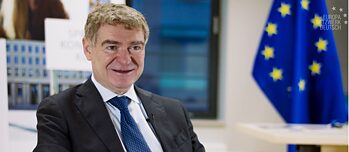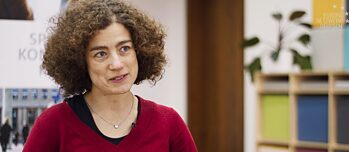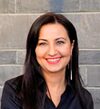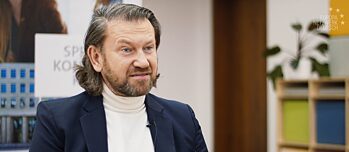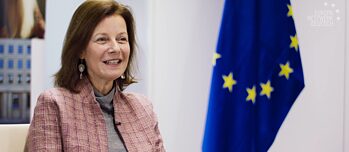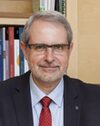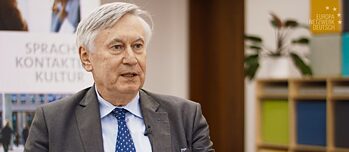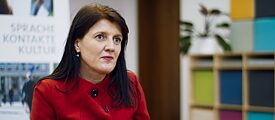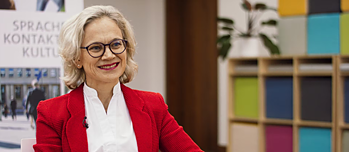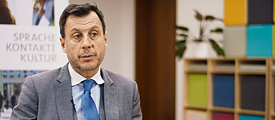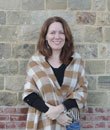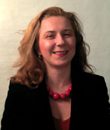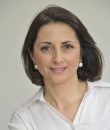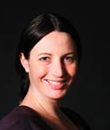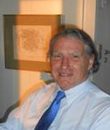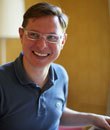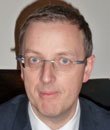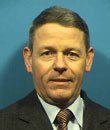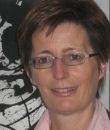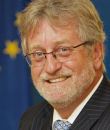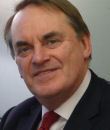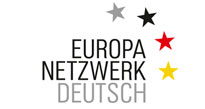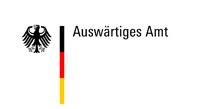Iliana Ivanova
Commissioner Innovation, Research, Culture, Education and Youth, European Commission"An important element of intercultural understanding is getting to know foreign languages and other cultures, so I am very happy to have improved my German language skills. The course in the framework of the Europanetzwerk Deutsch in Munich was an excellent opportunity for me to exchange views on a wide range of interesting topics in German and to experience German culture at first hand. What fascinates me about the German language, especially compared to other languages, is the order and structure of the German grammar - even the exceptions are based on certain rules - a good example for the EU!”
FERRAN TARRADELLAS ESPUNY
Press Officer for Competitiveness Councils, General Secretariat, DG Communication and Information, Council of the European Union"My experience shows that the German language is always important and that it can always be improved. The German language can also be very useful in a position as Head of the Representation of the European Commission in Barcelona. In Catalonia and the Balearic Islands there are important communities of German and Austrian citizens with whom I organise events, dialogues and conferences on European issues in German. Often there are also Commissioners and other officials with German or Austrian citizenship, who like to be welcomed in their own language. And in a city with many tourists like Barcelona, I sometimes give information in German, such as where the FC Barcelona stadium is"
Tomasz May
External Auditor, Directorate-General for Agriculture and Rural Development, European Commission"German was the first foreign language I started learning. I come from Poznań in the west of Poland, where it was the first choice for students at that time. I was lucky because I always had teachers, who taught us not only the language but also the culture, customs and traditions. Then I studied in Berlin... Then came the competitions to become an EU official, and here the knowledge of the language was a huge advantage. According to the old saying: "Practice makes perfect", it is a great opportunity to speak and practice German more often and all thanks to the Europanetzwerk Deutsch!”
Gabriella Lodi
Political Administrator, Directorate for Transport, Telecommunications and Energy, General Secretariat, Council of the European Union"As a child I started learning German under pressure: At Lake Balaton, where I grew up, it was almost a duty. "Corn please", "Room free" and "Pancakes" are forever connected with my summer holidays on the beach, not only in a positive sense. The Germans had big cars, we only had small ones. Everything was fine in their fridge, ours was always chaos. They ate Hungarian salami every day, for us it was only for school trips. No wonder that I - as soon as I could - decided to speak English and French instead.
Many years and experiences later I realized, especially here in Brussels, that the world has changed and so have I. Without the typical German way of thinking, European processes are not understandable, and I, too, have discovered more similarities with the Germans in myself than I would have thought.
For me, the German language is a positive rediscovery and represents a large part of the mixed identity that I developed in Brussels. With the help of these three languages, and especially through German, my understanding of the different European nationalities has become more complete. And there is also a little more order in my fridge."
Dominique Merle
Head of Unit, Directorate-General for Innovation and Technological Support, European Parliament"When working at the European Parliament, it is important to understand several languages. With 24 official languages, there are 552 language combinations! In this context, learning a new language is always a dilemma. As I had German lessons at secondary school, it was a logical choice for me when I started working at the Parliament. I realized that speaking German creates a connection between cultures. For me, learning German also means being influenced by other ideas and cultures. It also means making an effort to understand others. Whether in Paris, Lyon or Maillen - the Goethe-Institut has always played an important role in my learning of German."
Mirela Zečević
Head of Internal Market Department, Croatian Ministry of Economy
"Years ago, a love developed between me and the German language, which is growing and growing. Already as a child I fell in love with this language. I had my first contact with the German language on the island Korčula, where my parents own a holiday home which they rent to Germans. During this time I realized that I wanted to learn this language because I found it simply beautiful. The effort was worth it, because the German language has helped me to succeed in both my private and professional life and has given me a lot of pleasure, both in Croatia and on a European level. Every day I use it and enjoy it. But I still have to improve my German language skills a bit and I recently had a wonderful opportunity to do so: When I got a scholarship from the Goethe-Institut, I thought: "This is a lottery win"! I took part in a course with an agricultural policy focus, which gave me a great opportunity to learn a lot, to discuss, to see and experience new things and to meet like-minded people. These are experiences that will remain in my memory for a lifetime. I am simply thrilled! Therefore I will try to improve my German language skills and encourage my friends and acquaintances to learn this wonderful language. I was already successful at home: my three sons and my husband speak German."
Tamás Móró
Head of Unit, Department of Agricultural Economics, Hungarian Ministry of Agriculture"I come from a down-to-earth family of winegrowers from Hungary. In summer during my childhood, I met German guests at Lake Balaton and made interesting acquaintances. Nevertheless, I never liked German, because I found the language too complicated. As head of department in the Hungarian Ministry of Agriculture I was able to spend an exchange year 2012/2013 in the Federal Ministry of Agriculture in Bonn. The intensive language lessons at the Goethe-Institut in Bonn also helped me to learn about German culture and mentality. My attitude changed suddenly.
The Europanetzwerk Deutsch is a perfectly suitable connection to my previous experiences with Germany. The EU Common Agricultural Policy course offered me a wide range of technical discussions from federal to state level in Berlin and Irsee from 21.01.-31.01.2015. The diverse backgrounds of the participants also contributed immensely to the success of the course. My enthusiasm for German is now so great that I can hardly imagine my work without German."
Ana Ramirez
Head of Unit, General Secretariat of the Council of the European Union, Economic and Financial Affairs"When I was 16 years old, I started learning German in my hometown in northern Spain. In the whole city there was only one German teacher and a handful of students learning German. I wanted to speak a language that was more "exotic" than French or English, probably to impress my friends! The effort was worth it: I was soon enchanted by the beauty of the language and the richness of its literature. Later, I enjoyed German TV thrillers with my family and listened to the songs of Tokio Hotel with my daughter. Today I use German to communicate with my colleagues and friends in Brussels. In July 2014 I had the pleasure and honour to participate in the EU-04 course in Munich. It was a great opportunity to refresh my German and learn more about German culture. I will never forget the extremely funny Loriot play I saw with a group of classmates."
Małgorzata Bojańczyk
Civil servant at the Ministry of Agriculture and Rural Development in Warsaw."I got to know the German language several years ago. Since then I have developed a soft spot for this language and especially for the many beautiful words. Whoever learns a language is always looking for beautiful words, isn't he? The language always accompanies me, both at work or with my friends and when reading or listening to music. I have already taken part in two EU language courses - EU04 in Berlin/Brussels and EU01- Agriculture and Rural Development. This time was (like) a magical moment for me. I learned German at the highest level, experienced German culture and, above all, got to know interesting people. If you feel like learning German and want to experience something irreplaceable, you should definitely participate. Let the language melt in your mouth."
Nicholas Forwood
former judge at the European Court of Justice in Luxembourg."First, I learned German at my English school. But at that time my family lived in Germany because my father was a British officer in Düsseldorf. During the school holidays I often accompanied my mother to the city centre of Düsseldorf. I was very impressed because she always spoke German so well. Now in Luxembourg I have the opportunity to deepen my German. It is a special pleasure for me to use it on our walks across Germany - on the European long-distance hiking trail from Luxembourg to Vienna - and to get into conversation with my fellow countrymen and other hikers."
Luis Martinez Guillen
Head of the European Parliament Information Office in Strasbourg."I had always believed that it was necessary to master the European languages in order to understand Europe and its citizens. Therefore, learning foreign languages was a goal for me. But over the years I have learned that the more familiar you are with a language, the more you fall in love with it. After the language, the culture of the country, its history and its spirit come first. The course I attended not only helped me to improve my language skills, but also to immerse myself a little more in German culture and worldview."
Jean-François Salomon
Official at the European Commission, DG Move (Mobility and Transport)"I was 10 years old when the German representative Nicole won the Eurovision Song Contest with her song "Ein bisschen Frieden". For the first time I had the opportunity to hear the German language in poetic form. How beautiful! How sweet! Quite different from the somewhat strange sounding sounds in my ears, which I had heard until then. Immediately the French version of the song was released and played daily in all radio stations, but with the translation the charm was lost. The original version sounded much better to me and convinced me to learn German later, so that I could discover other beauties of this language."
Jean-Philippe Gammel
Assistant to the Director General, Joint Research Centre (JRC) of the European Commission"I come from a French village near the German border. The nearest major city is Saarbrücken in Germany. So I went there very often to go to the cinema, to concerts, or to do sports... A part of my family is German, many of my friends are German too. So the German language has always been a very important language for me. But I had to leave the border to take a job in the European Commission in Brussels. So German became one of my working languages. Today, of course, German is very important for my business trips to Germany or Austria, but it is also very useful to me here in Brussels for my contacts with the European Parliament or with the Council."
Jean-Claude De Vooght
former adviser Belgian Military Representation - Military Committee of the European Union"As a Belgian child, I heard and spoke my first words of German on the street in the early sixties while playing with other German children. My parents allowed me to watch "Bonanza" every week at "Das Erste". That was exciting and helped to make faster progress in German. Later there was also a bit of German as a foreign language at school, but more important was my stay in Germany of more than 25 years in total. This explains why I am still interested in Germany, my second home, today. Today I live in Belgium again and took the opportunity to demonstrate my German language skills at the Goethe-Institut Brussels. In the future, I intend to be able to guide German-speaking groups through my home town of Louvain-la-Neuve. I have still learned a lot and above all, it has given me a lot of pleasure and confidence to reach my goal as a guide. With many thanks for the offer."
Hélène Clark
Director, Directorate-General for Employment, Social Affairs and Integration, European Commission"Since I am responsible for lifelong learning within the EU Commission, I have to jump in the water myself! So I try to keep up my German language skills, which I was able to refresh at my previous position for the implementation of the ESF in Germany and Austria. German and Austrian contact persons really appreciate it when you use their language. It opened doors for me. I always found them very tolerant of my irregularities. Attention: do not confuse "fruitful"(fruchtbar) with "terrible" (furchtbar)..."
Sjef Coolegem
Retired Director of Interpretation at the European Parliament"For me, the German language is the most beautiful foreign language. You can express yourself very precisely in German, so I enjoy the language very much.
The most beautiful German words for me are probably: "empathize" (einfühlen), "tactfulness" (Fingerspitzengefühl) and "aniway" (sowieso). No other language I know can express feelings in such detail."
Timothy Kirkhope
Lord Kirkhope of Harrogate im Britischen House of Lords"I am very interested in Germany and its people. I also often go to Germany. In my family there was a connection with Germany in the past: my mother was a nanny in Berlin in the thirties. Many of my colleagues in the European Parliament speak German as their mother tongue and I would like to be able to understand them and talk to them in German."
Former participants in course offerings report here exclusively on their experiences with the German language and the Europanetzwerk Deutsch.
If you would like to share your experiences and reports, please send us your testimonial with a small photo:
europanetzwerk.deutsch-bruessel@goethe.de
We would be pleased!
